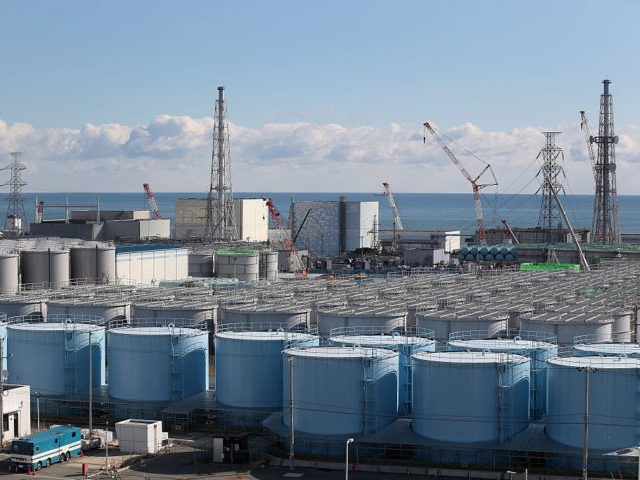Japan on Tuesday approved plans to release 1.25 million tons of contaminated water from the destroyed Fukushima nuclear power plant into the Pacific Ocean.
“On the premise of strict compliance with regulatory standards that have been established, we select oceanic release,” the Japanese government said in a statement on April 13. Work to release the water will begin in about two years the government said Tuesday, adding that the entire process is expected to take decades to complete.
A magnitude 9.0 earthquake, along with an ensuing tsunami, cut power to the Fukushima Daiichi plant on March 11, 2011, triggering core meltdowns in three of its reactors. Over 1 million tons of water used to cool the affected reactors was subsequently stored in above-ground tanks on the plant’s premises. The tanks also contain groundwater and rainwater contaminated by the nuclear meltdown. Plans to dispose of the water have been in development for years, with the Japanese government deciding Tuesday to release the water into the Pacific Ocean after treating it to remove most radioactive material through an advanced liquid processing system (ALPS).
“The [ALPS] process removes most radioactive materials including strontium and cesium but leaves behind tritium, which is related to hydrogen,” according to Kyodo News.
“According to the government’s plan, the tritium will be diluted to less than 1,500 becquerels per liter, one-40th of the concentration permitted under Japanese safety standards and one-seventh of the World Health Organization’s guideline for drinking water,” Kyodo News reported on April 13. “Third parties including the IAEA [International Atomic Energy Agency] and the Organization for Economic Cooperation and Development’s Nuclear Energy Agency will be involved to ensure the plan is being implemented properly,” the plan says.
The Citizens’ Commission on Nuclear Energy (CCNE), an independent research body established in Japan following the 2011 Fukushima nuclear disaster, expressed concern to Japan’s Mainichi newspaper Tuesday about the lack of a “uniform international standard on a level of tritium deemed safe for release into the environment.”
“Japan sets the level at 60,000 becquerels per liter, while the World Health Organization says the acceptable level is 10,000 becquerels per liter and the European Union 100 becquerels per liter,” CCNE member Masashi Goto told the Mainichi.
“Such significant differences in the standards across countries prove that there is no scientific foundation for the safety of tritium,” he said, adding “many countries have merely set standards because they needed to run nuclear power plants, which produce tritium as a byproduct.”

COMMENTS
Please let us know if you're having issues with commenting.